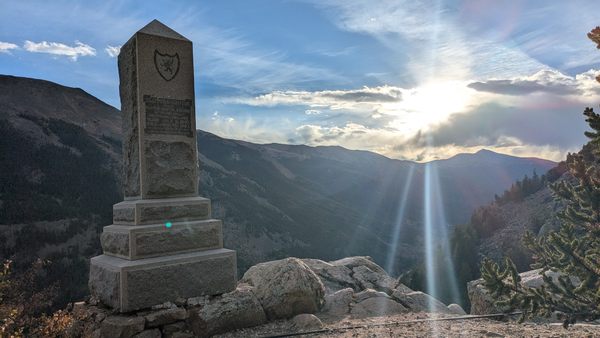High above the town of Silver Plume, Colorado, lies a solitary grave, marked by a small granite obelisk. The solitude of this tomb is matched only by the loneliness of its occupant, Clifford Griffin. Born to a well-off family in Shropshire, England, Griffin attended Peterhouse College, Cambridge University’s oldest and most prestigious constituent college. Young, educated, and engaged, he seemed destined for a long and happy life. Sadly, his fiancée died the night before their wedding. Clifford never recovered. In 1871, he shipped out from England forever, bound for a new life in the United States.
By 1880, he had moved to the new state of Colorado, and found employment as the superintendent of his younger brother’s gold mine. This operation was widely known as the 7:30 Mine. Most mines began work at 6:30 in the morning, but the Griffins kindly gave their workers an extra hour to sleep in. While Clifford shared in the wealth of the mine, he didn’t seem to show his good fortune. He built himself a small cabin on the cliffs above his mine. After work, he would return to his cabin and play his violin in solitude. The mournful tunes he would play would carry far and wide into the town of Silver Plume.
On June 19, 1887, Clifford played one last sorrowful melody outside his mountain home. Suddenly, the crack of a gun echoed across the canyon. The 7:30 miners rushed to check on their employer, but it was too late. Griffin was already dead, lying in a grave that he had cut himself out of solid rock. A note was found in his cabin, asking that he not be moved from his grave. The townspeople not only complied with his last request, but built a granite monument to honor him. To this day, some say that on quiet nights, they can still hear the whispers of his violin echoing across the canyon.

